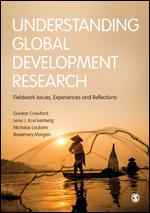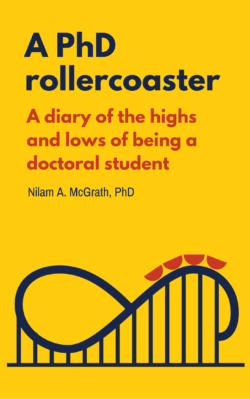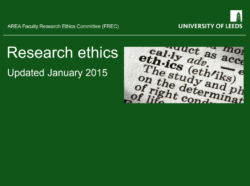Brown Bag resources
 Understanding Global Development Research: fieldwork issues, experiences and reflections.
Understanding Global Development Research: fieldwork issues, experiences and reflections.
This engaging book opens up new perspectives on conducting fieldwork in the Global South. It is organised around 6 key issues: 1) Meaningful participation in fieldwork; 2) Working in dangerous environments; 3) Gendered experiences of fieldwork; 4) Researching elites; 5) Conducting fieldwork with marginalised people; and 6) Fieldwork in development practice. You can download the introductory chapter for free here and buy the book here.
 A PhD Rollercoaster: A diary of the ups and downs of being a doctoral student.
A PhD Rollercoaster: A diary of the ups and downs of being a doctoral student.
What's it really like to do a PhD? There are lots of books of the ‘how to’ variety for organising yourself, dealing with supervisors, and writing papers and research proposals. But what about the emotional journey? What about the changes to your health, your social life, and your relationships with those closest to you? What about all the mistakes you make while trying to figure things out? And what if you’re not sure about life as an academic, what then? Read about the tears, tantrums and TV habits that led to this student passing with no corrections and taking a leap of faith at the end of her PhD rollercoaster.
Practical fieldwork notes, Volume 1: Based on presentations given at the 1st Researchers in Development Network (RiDNet) Conference in 2012 at the University of Leeds. Topics have been organised into 4 sections: 1) What (not) to say: Communication skills and field access; 2) Silenced voices: Opening up new perspectives on development; 3) Hot potatoes and hushed voices: Difficult research environments & sensitive topics; and Taking sides: Dealing with third parties. Download a copy here.
Working with research assistants and translators in overseas fieldwork: Notes from this seminar explore the practicalities of working with research assistants in overseas fieldwork and each presenter outlines their experiences with research assistants and translators. Download a copy here.
 Ethics in overseas fieldwork: Designing a research protocol is demanding and all steps of the research process takes time. Having to consider the ethical issues of your fieldwork and having to fill in the ethical approval form can feel quite overwhelming. This demands that you consider all the interlinking elements of the topic and its sensitivity, your own experience and the support systems you need to put in place for both yourself and your respondents. On top of this, you have to choose appropriate methodologies that answer your research questions. This is, of course, a tall order! For more information ethics for research, visit the University's Research and Innovation website.
Ethics in overseas fieldwork: Designing a research protocol is demanding and all steps of the research process takes time. Having to consider the ethical issues of your fieldwork and having to fill in the ethical approval form can feel quite overwhelming. This demands that you consider all the interlinking elements of the topic and its sensitivity, your own experience and the support systems you need to put in place for both yourself and your respondents. On top of this, you have to choose appropriate methodologies that answer your research questions. This is, of course, a tall order! For more information ethics for research, visit the University's Research and Innovation website.
Lessons from my fieldwork: Fieldwork can be challenging in any set of circumstances. For those with fieldwork still to come, here are some notes to learn from others’ experiences.
Risk and assessment in overseas fieldwork: There are risks involved in all research activities, particularly when these activities are conducted within a foreign environment. Before conducting fieldwork overseas it is important that you consider what potential risks might be involved to you as a researcher and individual. While it is recognized that some risks are unavoidable, it is important that all necessary precautions are taken to minimize these potential risks. The University of Leeds requires all students to complete a risk assessment before conducting fieldwork. With this in mind, here are some resources to help you assess low, medium and high risk fieldwork. For more information, visit the University’s Health and Safety website.
Making sense of qualitative data - coding strategies: This handout contains coding strategies for qualitative data, (in particular interviews and fieldnotes) and techniques to define categories that run across a data set.
